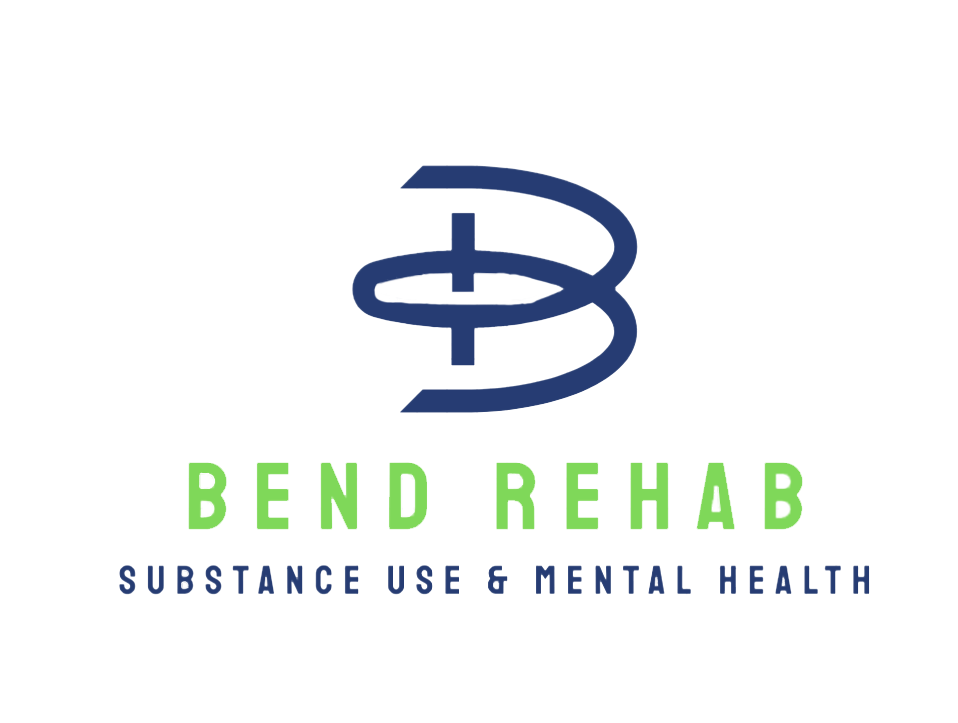Finding a Rehab Center in Bend Oregon
Rehabilitation is not just a step towards recovery—it’s a lifeline for those facing the challenges of addiction. Whether it’s for you, a family member, or someone you deeply care about, finding the right rehab center in Bend Oregon, can be one of the most important and life-changing decisions you’ll ever make. With countless facilities claiming to offer the best care, the process can quickly become overwhelming and confusing. How do you know which one is truly the right fit? This guide is here to help by breaking down everything you need to consider when choosing a rehab center in Bend Oregon. From understanding the different types of programs available—like inpatient, outpatient, and intensive therapy—to evaluating the qualifications and credentials of the staff, this resource will shed light on critical aspects of rehab care. It will also explore the importance of personalized treatment plans, the role of family involvement, and the aftercare services that are essential for long-term success.
Understanding the Rehab Center in Bend Oregon
Not all rehabilitation centers are the same, and understanding their differences is essential for making the right choice. Each center offers unique services, programs, and levels of care tailored to different needs. When considering rehab programs, there are two primary types to explore: inpatient and outpatient. Inpatient rehab provides 24/7 care, requiring individuals to stay at the facility, which is ideal for those needing intensive support in a structured environment. Outpatient rehab, on the other hand, allows individuals to live at home while attending scheduled therapy sessions, making it a more flexible option for those with work, school, or family commitments. Understanding the differences between these two options can help you find the program that best fits your situation and recovery goals.
What Is an Inpatient Rehab Center in Bend Oregon?
Also known as residential rehab programs, inpatient centers provide patients with 24/7 care in a structured and supervised environment designed to support recovery. These programs are particularly beneficial for individuals struggling with severe or long-term addiction, as they offer a safe, controlled space away from triggers and distractions. Patients have access to medical professionals, therapists, and support staff around the clock, ensuring their physical and emotional needs are met. Inpatient centers also incorporate a range of therapeutic activities, such as counseling, group therapy, and skill-building sessions, to foster long-term recovery and help patients rebuild their lives.
Key Features of an Inpatient Program:
- Round-the-clock monitoring and support
Our team is available 24/7 to provide continuous monitoring and assistance, ensuring any issues are addressed promptly and your operations run smoothly at all times.
- Evidence-based treatments, including individual therapy focused on personalized support and group counseling that fosters shared experiences and peer connection
- Stationary stays typically last between 28 to 90 days, though some programs may extend beyond this timeframe depending on individual needs and the specific goals of the program.
- Holistic therapies like yoga, meditation, or art therapy focus on improving overall well-being by addressing the mind, body, and spirit. Yoga enhances flexibility and reduces stress, meditation promotes mindfulness and emotional balance, and art therapy allows creative expression as a form of healing.
With no distractions or temptations, inpatient rehab allows individuals to focus entirely on recovery. This level of care is highly effective for those with co-occurring mental health conditions or a history of relapse.
What Is an Outpatient Rehab Center in Bend Oregon?
Outpatient programs provide a flexible approach to addiction treatment, allowing patients to live at home and maintain their daily responsibilities while attending scheduled therapy and treatment sessions during the week. This setup is ideal for individuals with mild to moderate addiction who may not need the structured environment of an inpatient program. It also serves as a more affordable solution, offering access to professional support without the added cost of overnight stays. Outpatient care can include individual counseling, group therapy, and educational sessions, helping patients build coping skills and maintain a sense of normalcy in their lives.
Key Features of an Outpatient Program:
- Flexible sessions scheduled to fit around your work or daily life, making it easy to prioritize your well-being. Therapy typically requires just a few hours per week, allowing you to focus on personal growth without disrupting your routine.
- Offering group, individual, and family therapy options to address a wide range of mental health needs and provide personalized care for every situation
- Medication management (if needed), including assistance with organizing, scheduling, and ensuring proper dosage adherence
- Costs significantly less than residential programs, making it a more affordable option for individuals seeking support without the high expenses associated with in-patient care.
While outpatient rehab provides freedom, it requires a strong support system at home and may not be the right choice for everyone.
Factors to Consider When Selecting a Rehab Center
Choosing the right facility requires careful consideration and should go beyond a quick referral or online search. This decision can have a significant impact on your overall experience, so it’s worth taking the time to evaluate several key factors. Start by assessing the quality of care provided—look for accreditations, certifications, or evidence of high standards. Consider the range of services offered to ensure they align with your specific needs, whether it’s specialized programs, personalized treatment plans, or access to additional resources. The expertise of the staff is another critical factor; qualified, experienced professionals can make a world of difference in the level of care you receive. Location can also play an important role, especially if proximity to family, work, or other commitments is a priority. Lastly, take time to read reviews and testimonials from other clients, as their experiences can provide valuable insight into what you can expect. By thoroughly researching and comparing your options, you can make a well-informed decision that ensures your needs and expectations are fully met.
1. Accreditation and Licensing
Ensure the rehab center is licensed by the Oregon Health Authority (OHA) and accredited by respected organizations like The Joint Commission or CARF (Commission on Accreditation of Rehabilitation Facilities). Why does this matter? Licensing and accreditation confirm that the center adheres to strict guidelines, follows evidence-based practices, and meets the highest standards of addiction treatment. These certifications also demonstrate a commitment to quality care, ensuring that patients receive safe, ethical, and effective treatment tailored to their needs. Choosing an accredited center can give you peace of mind, knowing your loved one is in qualified and trustworthy hands.
2. Treatment Approaches
Each individual’s recovery path is unique, which is why choosing a rehab center with flexible treatment models is essential. Recovery requires an approach that adapts to the specific needs of the person, so look for facilities that offer personalized plans tailored to individual circumstances. These plans should be grounded in evidence-based therapies and should accommodate a wide range of approaches, including traditional counseling, group therapy, and innovative holistic methods such as equine therapy, art therapy, or mindfulness meditation. Additionally, consider centers that provide options for family involvement, aftercare planning, and ongoing support to ensure a comprehensive and sustainable recovery journey.
Ask these key questions during your research:
- Does the facility specialize in treating specific types of addictions, such as alcohol, drugs, or behavioral addictions, and do they offer tailored programs for these?
- Do they offer dual-diagnosis treatment that addresses both mental health disorders and any co-occurring substance use issues?
- Are treatment plans personalized and tailored to each patient’s unique needs, preferences, and progress over time to ensure the best possible outcomes?

3. Staff Qualifications
The expertise and care of the staff play a crucial role in shaping recovery outcomes, making it vital to choose a rehab center with qualified professionals. Take the time to research the credentials and experience of the addiction specialists, therapists, and medical personnel who will be providing care. Look for certifications, relevant training, and a proven track record of working in addiction recovery to ensure you or your loved one receives the highest standard of support.
Look for these qualifications:
- Certified Addiction Counselors (CADC) are professionals trained to provide guidance, support, and treatment for individuals struggling with substance use disorders.
- Licensed Clinical Social Workers (LCSWs) are professionals trained to provide mental health services, including therapy, counseling, and support, to individuals, families, and communities.
- Psychiatrists or psychologists with extensive experience in addiction treatment, specializing in helping individuals manage substance use disorders and providing tailored therapeutic support
- Low staff-to-patient ratios ensure each patient receives personalized attention and care, allowing staff to focus on individual needs and provide a higher quality of service.
4. Location and Environment
Bend, Oregon, is often sought after for its serene and scenic surroundings, making it an excellent choice for recovery and healing. Nestled in the heart of Central Oregon, this picturesque destination provides a perfect balance of natural beauty and tranquility. Some individuals feel more comfortable staying close to home, where they can rely on the support of family and loved ones during their recovery journey. Others, however, seek a fresh start in a peaceful, distraction-free environment, and Bend offers exactly that. Known for its breathtaking outdoor spaces, Bend provides countless opportunities to connect with nature. From hiking trails that wind through lush forests to tranquil waterfalls that inspire a sense of calm, the region offers more than just a scenic backdrop. These outdoor experiences can serve as invaluable therapeutic tools, complementing traditional treatments and helping individuals reconnect with themselves in meaningful ways.
5. Aftercare and Relapse Prevention
Recovery doesn’t stop when the rehab program ends—it’s an ongoing, lifelong process that requires continuous effort and support. When choosing a facility, ask about their aftercare services to ensure you or your loved one will have the resources needed for lasting success. Look for programs that offer alumni services, ongoing counseling sessions, access to support group meetings, or relapse-prevention training. These services can provide a vital safety net, helping individuals navigate the challenges of post-rehab life. Effective rehab programs equip patients with essential tools, coping strategies, and a supportive community to maintain sobriety and build a fulfilling, substance-free future long after they’ve left the center.
6. Insurance and Financial Considerations
Rehab can be costly, so it’s important to verify whether your health insurance covers addiction treatment at the facility you’re considering. Start by checking with your insurance provider to understand what types of treatment are covered and whether the facility is in-network, which can significantly reduce out-of-pocket costs. Most rehab centers in Bend, Oregon, accept private insurance and have dedicated staff to help guide you through the process of understanding your benefits and filing claims. For those without insurance, many facilities offer flexible payment plans, sliding scale fees, or scholarships to help ease the financial burden. Don’t hesitate to ask about these options—there are often resources available to ensure that cost doesn’t become a barrier to getting the help you need.
The Benefits of Choosing Rehab in Bend, Oregon
Bend, Oregon, is more than just a picturesque escape—it’s a nurturing ground for recovery. Surrounded by breathtaking natural landscapes, individuals in recovery can explore connecting with nature through activities like hiking in the Deschutes National Forest, kayaking along the serene Deschutes River, or meditating in its tranquil parks. These activities complement therapeutic efforts, helping patients reconnect with themselves and build strength, mindfulness, and resilience. Additionally, Bend’s rehab centers often incorporate these outdoor experiences into their holistic care programs, creating a well-rounded approach to healing.
Conclusion
Reaching out for help is one of the most challenging steps, but it is also the most important. Choosing the right rehab center in Bend, Oregon, ensures you or your loved one will receive the care, support, and tools required for a successful recovery. Whether opting for an inpatient or outpatient program, consider accreditation, treatment approaches, staff qualifications, and aftercare services as your guiding factors. Recovery is entirely possible, and with Bend’s compassionate rehab services in a nurturing environment, individuals have the opportunity to reconnect with themselves and build a healthier, addiction-free life. If you or someone you love is struggling with substance abuse, don’t wait to contact us by calling 1 (541) 802-7214 or clicking Bend Rehab. Take the first step today and start exploring available rehabilitation options in Bend, Oregon. Each step forward matters—and recovery is within reach.




